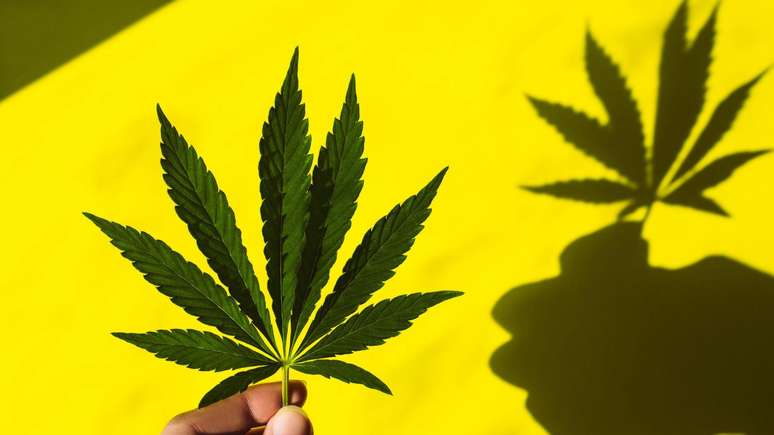Research suggests that it’s worth considering the effects that long-term cannabis use can have on our minds, especially in young people whose brains are still developing.
Cannabis has been used by humans for thousands of years and is one of the most popular drugs today. With effects such as a feeling of joy and relaxation, it can also be prescribed or used legally in several countries.
But how does the use of this drug affect the mind?
In three recent studies, published in The Journal of Psychopharmacology, Neuropsychopharmacology and International Journal of Neuropsychopharmacology, we have shown that it can influence several cognitive and psychological processes.
The United Nations Office on Drugs and Crime reported that in 2018, approximately 192 million people worldwide aged 15 to 64 used cannabis recreationally.
Young adults are particularly interested, with 35% of people aged 18 to 25 using it, compared to just 10% of those aged 26 and over.
This indicates that the main users are adolescents and young adults, whose brains are still developing.
They may therefore be particularly vulnerable to the long-term effects of cannabis use on the brain.
Tetrahydrocannabinol (THC) is the main psychoactive compound in cannabis. It acts on the brain’s “endocannabinoid system”, which is the receptors that respond to the chemical components of cannabis.
Cannabis receptors are densely populated in the prefrontal and limbic areas of the brain, involved in reward and motivation. They regulate signaling of the brain chemicals dopamine, gamma-aminobutyric acid (GABA), and glutamate.
We know that dopamine is involved in motivation, reward and learning. GABA and glutamate play a role in cognitive processes, including learning and memory.
Cognitive effects
Cannabis use can affect cognition, especially in individuals with cannabis-induced disorders, characterized by a persistent desire to use the drug and disruption of daily activities such as work or study.
It is estimated that approximately 10% of cannabis users meet the diagnostic criteria for this disorder.
In our research, we tested the cognitive abilities of 39 people with the disorder (who were asked not to use the drug on the day of the test) and compared them with those of 20 people who never or rarely used cannabis.
We demonstrated that participants suffering from this condition performed significantly worse on the CANTAB (Cambridge Neuropsychological Test Automated Battery) memory tests, compared to individuals in the control group, who never or very rarely used cannabis.
It also negatively affected their “executive functions,” which are mental processes that include flexible thinking.
This effect appeared to be related to the age at which people started using the drug: the younger they were, the more impaired their executive functions.
Cognitive impairments have also been observed in light cannabis users. These users tend to make riskier decisions than others and have more problems with planning.
Although most studies have been conducted in men, there is evidence of sex differences in the effects of cannabis use on cognition.
We showed that while the memory of male cannabis users was weaker in recognizing things visually, female users had more problems related to attention and executive functions.

These sex-attributed effects persisted when controlling for age; IQ; use of alcohol and nicotine; mood and anxiety symptoms; emotional stability; and impulsive behavior.
Reward, motivation and mental health
Cannabis use can also affect the way we feel, further influencing the way we think.
For example, some previous research has suggested that reward and motivation – along with the brain circuits involved in these processes – might be affected when we consume cannabis.
This can hinder our performance at school or work, as it can make us feel less motivated to work hard and less rewarded when we do well.
In our recent study, we used a brain imaging task, in which participants were placed in an MRI machine and shown orange or blue squares.
The orange squares would lead to a cash reward, after a delay, if the participant gave an answer.
This setup helped us study how the brain responds to rewards. We specifically focused on the ventral striatum, which is a key region in the brain’s reward system.
We found that the effects on the reward system in the brain were subtle, with no direct effects of cannabis on the ventral striatum.
However, the participants in our study were moderate cannabis users.
The effects may be more pronounced in cannabis users who use more intensely and chronically, as seen in cannabis use disorder.
There is also evidence that cannabis can lead to mental health problems.
We have shown that it is linked to greater “anhedonia” – the inability to experience pleasure – in adolescents. Interestingly, this effect was particularly pronounced during the lockdown due to the Covid-19 pandemic.
Cannabis use during adolescence has also been reported to be a risk factor for the development of psychotic experiences, as well as schizophrenia.
One study showed that cannabis use moderately increases the risk of psychotic symptoms in young people, but has a much stronger effect on those predisposed to psychosis (high scores on the symptom list of paranoid ideas and psychoticism).
Evaluating 2,437 adolescents and young adults (14-24 years), the authors observed a six percentage point increased risk – from 15% to 21% – of psychotic symptoms in cannabis users without a predisposition to psychosis.
But there was a 26-point increase in risk – from 25% to 51% – of psychotic symptoms in cannabis users with a predisposition to psychosis.
We don’t actually know why cannabis is linked to psychotic episodes, but hypotheses suggest that dopamine and glutamate may be important in the neurobiology of these conditions.
Another study of 780 adolescents suggested that the association between cannabis use and psychotic experiences was also linked to a brain region called the “uncus.”
It is found in the parahippocampus (involved in memory) and the olfactory bulb (involved in processing odors) and has a large number of cannabinoid receptors. It has also been associated with schizophrenia and psychotic experiences.
The cognitive and psychological effects of cannabis use likely depend to some extent on dosage (frequency, duration, and intensity), gender, genetic vulnerabilities, and age of onset.
But we need to determine whether these effects are temporary or permanent.
An article summarizing several studies suggests that, in the case of light cannabis use, the effects may diminish after periods of abstinence.
But even if that were the case, it’s worth considering the effects that long-term cannabis use can have on our minds, especially in young people whose brains are still developing.
*Barbara Jacquelyn Sahakian is a professor of clinical neuropsychology at the University of Cambridge, UK.
Christelle Langley is a postdoctoral research associate in cognitive neuroscience at the University of Cambridge.
Martine Skumlien is a PhD student in psychiatry at the University of Cambridge.
Tianye Jia is a professor of population neuroscience at Fudan University in China.
This article was originally published on the academic news website The conversation and republished here under a Creative Commons license. Read the original version here (in English).
*This report was originally published on 05/01/2022 and republished on 06/26/2024.
Source: Terra
Ben Stock is a lifestyle journalist and author at Gossipify. He writes about topics such as health, wellness, travel, food and home decor. He provides practical advice and inspiration to improve well-being, keeps readers up to date with latest lifestyle news and trends, known for his engaging writing style, in-depth analysis and unique perspectives.








